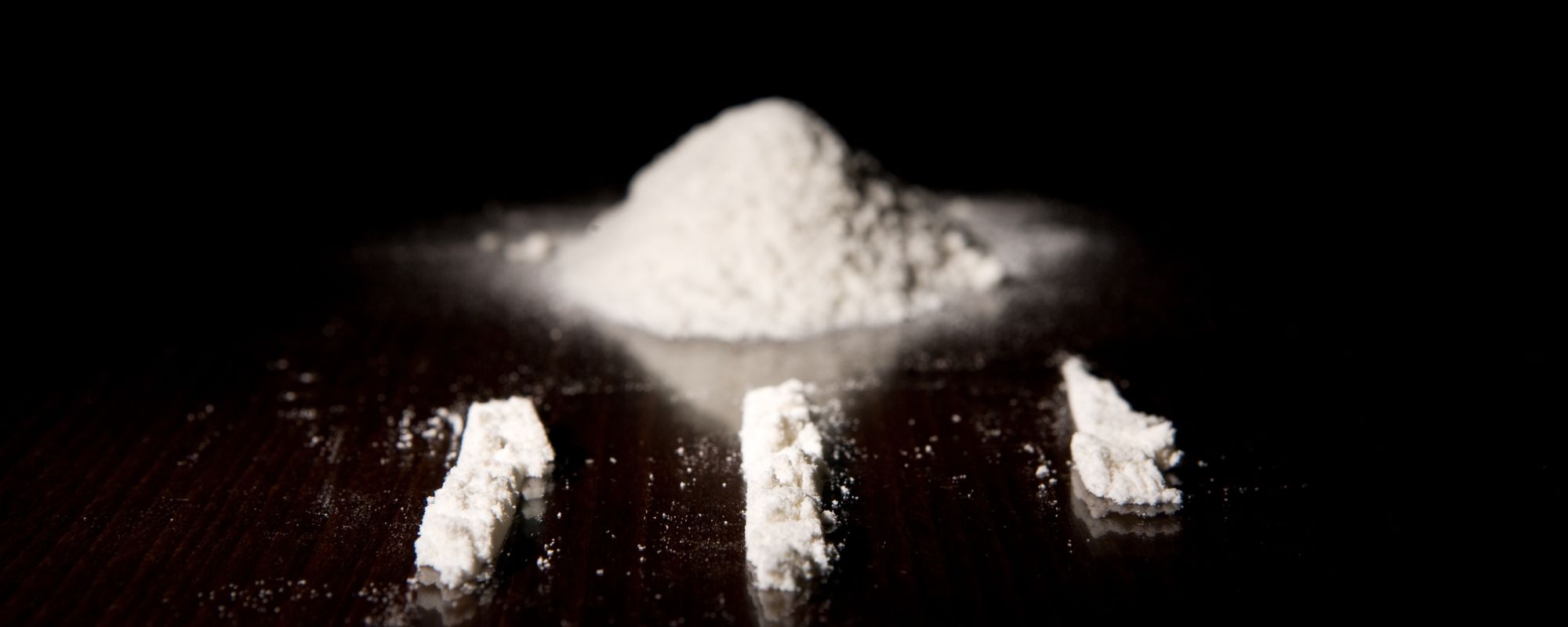A powerful drug that imparts intense effects on the brain and body, cocaine remains one of the most dangerous and widely used illicit substances. A survey from the National Institutes of Health notes that about 41 million adults reported a lifetime use of cocaine, with 5.4 million revealing using it recently.
If you’ve used cocaine occasionally or developed an addiction to it, taking the steps to quit is the best choice for you, your health, and your loved ones. You might wonder how long cocaine stays in your system — especially if you’re ready to enter detox or if you have cocaine drug tests scheduled that could negatively impact the outcome of a job opportunity.
Here’s what you need to know about how your body metabolizes cocaine and processes the drug and various factors that can affect cocaine detection times.
What Is Cocaine?
Cocaine is a stimulant that’s derived from the leaves of the coca plant indigenous mainly to Colombia, Bolivia, and Peru. In fact, most of the mainstream supply of cocaine is produced in South American jungle labs and illegally imported into the U.S., notes the U.S. Drug Enforcement Agency.
Cocaine was not always an illegal drug; when it was discovered in the late 19th century, it originally had pharmacological purposes as an anesthetic. Around that time, it was also used as a flavoring ingredient in Coca-Cola (though you won’t find any cocaine in the soft drink today).
Most cocaine comes as a white powder that users inhale through their nostrils, where it enters the bloodstream through the nasal membranes. The euphoric effect you’ll feel after snorting cocaine is due to the increase of dopamine levels in the brain. Cocaine speeds up your body, so taking it will also make you feel alert, more excitable, and with a lowered appetite. You’ll feel these effects within three to five minutes if inhaled and 15 to 30 seconds taken intravenously.
Is Cocaine Addictive?
Yes, cocaine is highly addictive. “Drugs like cocaine powerfully activate reward and reinforcement mechanisms in the brain,” notes the National Institute on Drug Abuse (NIDA) — the reward being the high one receives after taking cocaine, and reinforcement as the desire to want more of the drug. However, repeated, chronic use can lead to tolerance (needing more cocaine to match the same euphoric high as before) and, eventually, a substance use disorder (a complete inability to stop using a substance even when you want to). Over time, you may find that your brain craves the elevated dopamine levels provided by cocaine, leading to compulsive use despite the negative short- and long-term consequences.
“This dopamine surge, simultaneous with the euphoric effects of the drug, teaches the brain that this reward is desirable and to seek it again,” says NIDA. “This reinforcement sets in motion the addiction cycle.”
The DEA adds, “Many addicts report that as tolerance develops, they fail to achieve the positive effects they experienced when they first began using the drug; thus, they begin to use cocaine with greater frequency and in larger doses.”
Can You Overdose on Cocaine?
It is possible to overdose on cocaine since users will have no awareness of how potent their supply is. An overdose happens when toxic amounts of cocaine overwhelm your body’s ability to process the drug.
A cocaine overdose can include these symptoms:
- Abrupt mood changes
- Paranoia
- Panic
- Agitation
- Aggressiveness
- Confusion
- Nausea/vomiting
- Chest and stomach pain
- Twitching/convulsions/seizures
However, because cocaine can elevate one’s heart rate and blood pressure, an overdose can prove fatal, leading to severe complications like heart attack, stroke, respiratory problems, coma, or death.
According to the Centers for Disease Control, cocaine overdose deaths remained stable between 2009 and 2013 but nearly tripled from 1.6 per 100,000 people in 2013 to 4.5 in 2018.
How Is Cocaine Metabolized?
Because cocaine has a shorter half-life (around one hour) than some other narcotics, your body can metabolize it quickly. This happens when the body breaks down cocaine into metabolites, which travel to the urine, saliva, hair, and bloodstream, as cocaine in blood/saliva/hair and urine can each be tested for cocaine.
Cocaine’s drug metabolism starts after plasma butyrylcholinesterase (BChE) — a chemical in your blood plasma — breaks down the drug into ecgonine methyl ester, or EME. Enzymes in your body also break down the cocaine further into benzoylecgonine, which can travel to the urine, saliva, hair, and bloodstream and is the main metabolite that shows up on cocaine drug tests.
How Long Does Cocaine Stay in Your System for a Urine Test?
Urine tests are one of the most common cocaine drug test methods. How long does cocaine stay in urine? There’s a fairly quick cocaine elimination time from the body, but benzoylecgonine — the metabolite mentioned earlier — can be detected up to four days after last use. In heavier cocaine use, cocaine detection times may last a bit longer.
How Long Does Cocaine Stay in Your System for a Blood Test?
In the bloodstream, the drug is detectable in your plasma’s metabolites up to 48 hours (two days) after taking cocaine.
How Long Does Cocaine Stay in Your System for a Saliva Test?
Cocaine saliva tests are becoming more popular in settings that require quick and non-invasive sampling. A saliva test can detect cocaine in the body within one to two days (24 to 48 hours) since last used.
How Long Does Cocaine Stay in Your System for a Hair Test?
Though it may seem unlikely, hair tests actually offer a longer cocaine detection window than a urine, blood, or saliva test. Unlike those fluids, your body doesn’t discard your hair, so cocaine metabolites can be detected in the follicles up to 90 days after last using the drug. Cutting your hair may increase the chances of a negative test result since the strands that contain metabolites are now gone.
Factors That Affect How Long Cocaine Stays in the System
Multiple factors can influence the cocaine detection times listed above:
- Genetics: Your genetic makeup can affect your liver enzyme activity, altering the rate at which cocaine is metabolized. People with faster metabolisms might clear the drug more quickly, while slower metabolizers may retain traces of it for longer.
- Frequency and severity of use: If you’re a chronic cocaine user, metabolites may accumulate in your system, leading to longer drug detection times.
- Dosage: The amount of cocaine you consume directly impacts how long it stays in your system. Larger doses require more time to be completely eliminated from your system.
- Your overall health: Your liver and kidney functions are important in metabolizing and excreting cocaine. Your weight and body fat percentage also play a role since cocaine metabolites can bind to fat cells and prolong detection times.
- Polydrug use: Mixing cocaine with other substances (like alcohol or opioids) can extend its presence in the body.
Reach Out for Help With Addiction
Are you struggling with addiction?
Royal Life Centers at Chapter 5 is here to help you recover. Because we care.
What Is Cocaine Addiction Treatment Like?
When you decide to seek help for cocaine abuse at a treatment facility, your road to recovery follows a certain trajectory to ensure that you not only quit using cocaine but that you understand the underlying issues of your drug addiction so you can go back into the world knowing you can go on living your life without needing to rely on substances.
Here’s what treatment looks like at Royal Life Centers’ Chapter 5 campus in Prescott, AZ:
Medical Detox for Cocaine Addiction Treatment
Detoxifying your system of all traces of cocaine is a necessary first step in rehab since your body needs to be clear of any influence of the drug in order to progress to future phases of treatment.
Why is it called “medical” detox? After you stop using cocaine, withdrawal symptoms can be uncomfortable and include everything from fatigue to anxiety, irritability, and intense cravings. Under medical supervision with a compassionate, supportive staff of doctors and nurses, you can manage these symptoms in a safe environment. The goal is to monitor and stabilize your body and prepare you for subsequent stages of treatment. Medication is used in some cases during detox.
Inpatient Cocaine Addiction Treatment
Residential inpatient treatment means we can accommodate you to live at our facility for a period of time to devote 24/7 focus to your recovery, without distractions, triggers, or temptations, in a drug-free environment. Inpatient treatment is ideal for people who have a more severe addiction and are prone to relapsing or a co-occurring disorder (requiring mental health treatment).
At the Chapter 5 facility, you would benefit from structured programming and round-the-clock medical supervision, surrounded by a community of other men facing similar challenges. Here, you’ll receive no less than the best-tailored interventions that address both the physiological and psychological aspects of cocaine addiction.
Outpatient Cocaine Addiction Treatment
Royal Life Centers Outpatient Programming takes place at our Washington locations. A great way to sustain your recovery after an inpatient stay, outpatient treatment allows you to continue therapy surrounded by like-minded men in recovery.
Outpatient treatment also offers the most flexibility, so you’re enabled to attend therapy and fulfill your treatment obligations while being able to return home every evening to continue work, school, or family responsibilities, so you can gradually adapt to a life free from cocaine.
Aftercare for Cocaine Addiction
Once formal treatment is complete, your Chapter 5 support system doesn’t disappear. Aftercare is the process of continuing care after inpatient or outpatient. Working with your therapist and a case manager, you might decide to continue attending group therapy on campus to maintain your network and avoid relapse. They can refer you to support groups close to where you live, like Narcotics Anonymous or Cocaine Anonymous. Additionally, you’ll also have the option to live in a sober living home for a time before transitioning back to living on your own — all valuable resources to maintain all the gains you’ve achieved during treatment.
Therapies for Cocaine Addiction Recovery
At Chapter 5, therapy for cocaine addiction takes shape in two ways:
Evidence-Based Psychotherapy
What does research-based mean? It’s when talk therapy (individual or group) has been proven effective by scientific evidence — from the number of people who have finished therapy, avoided relapse, and stayed sober. Cognitive behavioral therapy (CBT) is one type of therapy used to treat cocaine addiction; it can help to identify and modify any destructive thought patterns that might contribute to your substance abuse.
By understanding the underlying nature of why you use cocaine, you can begin to develop healthier coping mechanisms to help you avoid drugs during times when you normally use, reclaiming control over your life once overshadowed by cocaine.
Holistic Recovery Options
Holistic means whole, and holistic recovery is meant to treat your mind, body, and spirit through a series of therapies that complement your talk therapy. There’s music therapy to tap into the eternal power of music and help you process the emotions — sometimes deeply hidden — that went hand in hand with your addiction. Adventure therapy in rugged Prescott helps to build confidence by encouraging teamwork and problem-solving with your peers in recovery.
Equine therapy enables you to build a bond with and care for a gentle horse to foster a sense of better emotional awareness and trust — not just trusting your equine partner but yourself as you continue the road to recovery.
Finding a Cocaine Addiction Treatment Facility
Cocaine addiction can be debilitating — but know that help is available and recovery is possible. By choosing Royal Life Centers as a treatment option, you’ll have access to a facility that is accredited and licensed, comprehensive and integrated treatment programming to address every facet of addiction unique to your needs, and staff experienced in your substance abuse and how to treat it.
Whether you are struggling with alcohol addiction, heroin addiction, or benzodiazepine addiction, lasting healing is possible. At our treatment center, we provide comprehensive care for substance use and co-occurring mental health conditions. Our admissions team will guide you through every step of the admission process, starting with a mental health assessment to create an individualized plan of care. From alcohol detox to individual therapy, our programs are designed to treat both the mind and body while addressing underlying challenges like trauma, depression, and personality disorder.
We always say that you can change your life with one phone call, and we mean it. If you have questions about cocaine addiction, what treatment looks like, or if your insurance will cover it, don’t hesitate to pick up the phone (or request for us to contact you) and contact us today.
- https://pmc.ncbi.nlm.nih.gov/articles/PMC8830384/
- https://www.justice.gov/archive/ndic/pubs3/3951/3951p.pdf
- https://museum.dea.gov/exhibits/online-exhibits/cannabis-coca-and-poppy-natures-addictive-plants/coca#:~:text=Coca%20and%20Cola%3A%20In%20the,the%20flavoring%20for%20Coca%2DCola.
- https://nida.nih.gov/research-topics/cocaine#work
- https://my.clevelandclinic.org/health/diseases/6407-addiction
- https://www.goodrx.com/conditions/substance-use-disorder/signs-of-cocaine-overdose
- https://www.cdc.gov/nchs/products/databriefs/db384.htm
- https://na.org/
- https://ca.org/
- What Is Drug Detox and How Does It Help? - December 8, 2025
- How Long Does Cocaine Stay in Your System? - August 27, 2025
- Relapse Prevention for Alcoholism - July 29, 2025






